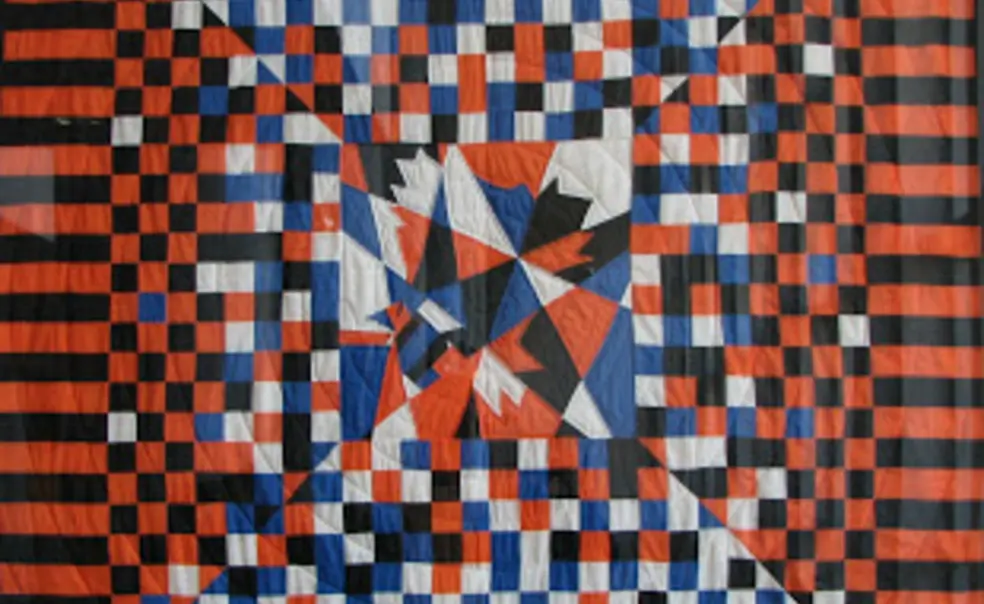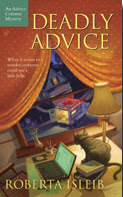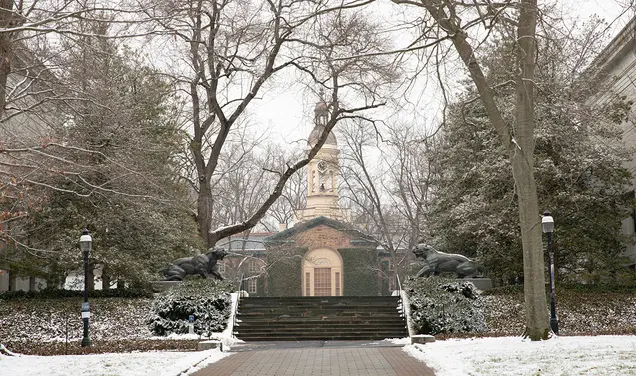The Weekly Blog: 3/14/07
NOTE: This post was originally published at princetonalumniweekly.blogspot.com/
Crash through the lines of blue
“The Princeton-Yale Game Increases in Intensity,” a 6-foot-square quilt by Phyllis Kluger, was put on permanent display at the Frist Campus Center in the fall. Phyllis is the wife of Dick Kluger ’56, who wrote in the March 7 class notes: “It’s a great thrill for her (and me) that a large sample of her work will be within daily view on the PU campus, where we met 52 years back.”
Spring break on campus
Many of Princeton’s spring sport teams will be traveling south for Spring recess next week, but women’s lacrosse will be using the break from classes to host two key games in the friendly confines of Class of 1952 Stadium. The Tigers will face Penn State March 17 at 2 p.m. and play at home again March 21 against Loyola at 7 p.m. Holly McGarvie ’09 scored an overtime goal in Princeton’s first home game, March 3, as the Tigers edged Johns Hopkins 11-10.
Alumni in the news
New York Magazine profiled Richard Stengel ’77, the managing editor of Time magazine, in its March 12 issue. “Stengel has already given Time magazine a narrower and sharper editorial profile,” New York reported, “with more covers about war and politics than usual and almost no pop culture (Anna Nicole Smith didn’t make the cut) or soft social reporting (like the ever-popular Jesus Christ covers). … Jonathan Safran Foer ’99, author of the novels Everything is Illuminated and Extremely Loud and Incredibly Close, was selected as one of the best American novelists under age 35 by Granta, a British literary magazine. Also on the list was Gabe Hudson, a visiting fellow and creative writing instructor at Princeton. … Woodrow Wilson School Dean Anne-Marie Slaughter ’80 and colleague Thomas Wright, a senior researcher for the Princeton Project on National Security, examined the penalties for nuclear trafficking in a March 1 Washington Post op-ed piece. “Current efforts to close down the nuclear black market have an Achilles’ heel,” they wrote. “[C]ertain states will not cooperate and will even protect nuclear criminals.” Slaughter and Wright recommended making the trafficking of nuclear materials a crime against humanity, because it endangers so many people, and allowing the International Criminal Court to prosecute those involved in the crime.














No responses yet